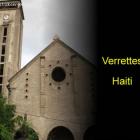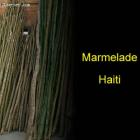ADVERTISEMENT
Disaster Tips - Haiti Observer Blog
Disaster Tips, Haiti Observer Blog. Read the following articles about Disaster Tips
Steps to Take Right after a Disaster
Look to see what injuries family members may have sustained. Gather them together in the least risky place, to remain there, until you contact them. Check on pets, securing them with fresh water and food.
Call extended family and close friends to report everyone has survived. Ask them to spread the word among other friends.
For medical attention, go to your neighbor's home and dial for emergency vehicles. Also find out where survivor shelters are from one of the disaster relief agencies. Clear fallen trees from driveway using a power tool, so emergency vehicles can park there.
What is a Tornado?
Tornadoes are experienced in almost everywhere in the world. Relative to land area, the United Kingdom is the most tornado prone country. However, the United States is hit by tornadoes more than any other country in the world.
Tornadoes occur in storms. The development of tornadoes has not been vividly explained. The process has not been fully understood. Nevertheless, it is explained that, when warm air is forced to rise through a layer of overriding cold air, the result is a tornado. Tornadoes may form in the absence of convection though. Another phenomenon that is believed to be an ingredient of tornado formation is the existence of strong surface temperature differences.
Useful Tips For Flooding
The number of lives lost through flooding is alarming. Floods have also damaged people's property and countries' expensive infrastructure. It is therefore of high importance to be on the alert. Here are some of the tips to keep you prepared before the next flood finds you unaware.
Number one; you need to know how prone your area is to flooding. You can get this information from the Red Cross chapter in your locality.
Know the signs. If your area is experiencing heavy unending downpour, be alert another flood may just be knocking. On the contrary, flash floods may not prepare you; it takes a few minutes to a few hours for a flash flood to develop.
What is a blizzard?
A blizzard is a form of severe winter storm. There are several standards that have been used to describe blizzards.
For a winter storm to be classified as a blizzard, the prevailing weather condition must reach certain levels. It is widely accepted that, if the visibility decreases to a quarter of a mile (400 metres) or less, the form of precipitation being experienced is snow or ice, the wind is blowing at an average speed of at least 32 mph, and the condition persists for at least three consecutive hours, then the winter storm is a blizzard.
What is a Hurricane?
The term hurricane is sometimes used interchangeably with typhoon. It is a tropical cyclone characterized by intensified sustained winds of more than 34 mps or 74 miles per hour. A hurricane tends to develop an eye at the centre of the circulation. The eye refers to the circular centre of the cyclone, which is normally at a low pressure and cloud free.
A prevailing weather disturbance is one of the ingredients for a hurricane. Warm tropical oceans, presence of moisture, and existence of light winds aloft are other contributing factors of hurricane. When these conditions persist long enough, they combine to create the violent winds associated with hurricanes. Incredible waves and torrential flood rains are other characteristics of hurricanes
Guidelines for Weeks Following a Disaster
Many tasks still need completing beyond the first few days after a disaster has occurred. Once more urgent needs have been met, make a list of safety measures to protect your belongings and property. Here are some guidelines to get you started.
Move your furnishings to a storage space (for safekeeping), while your house is being repaired. If you own a large vehicle such as a trailer, you can store household objects and belongings in it and secure it.
Take dry and canned goods from your kitchen and store them in the trailer or trunk of your car. Also take freezer food and store it in a rented freezer locker nearby.
Guidelines for Being in a Car or Outside during a Disaster
If you are driving a vehicle on the road and see a tornado, stop, get out, and search for a ravine, ditch, or gully. Flatten yourself against the ground for best protection.
Avoid being near trees, power lines, or any objects likely to fall on you. Avoid crests of hills or promontories.
Should a violent thunder and lightning storm strike, while you are operating a vehicle, stop and park. Remain in your vehicle until the storm has moved on.
During a storm, avoid trees and large objects that are lightning attractors.
First Responders after an Earthquake
After a large magnitude earthquake hits, first responders are at the scene to help in rescuing trapped victims and saving as many lives as possible.
After a large magnitude earthquake hits, first responders are at the scene to help in rescuing trapped victims and saving as many lives as possible. It is imperative that they get to the scene of the disaster as soon as possible. This can happen more quickly when they are local first responders, such as firemen and emergency medical technicians.
But if local first responders' services have suffered major damage, getting aid to the stricken area takes longer. Then the aid must come from disaster relief agencies outside the country. And it can be hard for them to determine the extent and severity of the damage. Once the disaster relief agencies are on the ground, they can assess the situation and provide whatever aid is needed.
Guidelines for Earthquake Preparedness
When a high magnitude earthquake hits, it can cause severe damage to life and property.
When a high magnitude earthquake hits, it can cause severe damage to life and property. Here are some safety guidelines to prepare for one.
Earthquake safety is important and every family member should know how to protect themselves. When an earthquake strikes, find a sturdy table, chair, or other strong object to crawl under, to protect from falling objects and debris. Standing under a door frame is another form of protection.
Avoid being near a window, underneath any heavy objects, including paintings and mirrors. Stay away from sofas, dressers, armoires, or other heavy furnishings, as well as the fireplace.
How to Prepare for a Disaster
When a natural or man-made disaster hits, possible loss or destruction of property and family members' whereabouts can be traumatic. A disaster preparedness plan will insure that your family and possessions are safeguarded.
Of primary importance is family members' safety. With small children under six, get them dog tags and include names, addresses, phone numbers, and medical conditions. Place them on your child when disaster hits. For older children, have them memorize the same information.
Scout out a location where family can meet up if separated during a disaster, or if in different places when disaster hits.
Our objective is to share with you news and information about Haiti and the people of Haiti. Traditions, habits and the way we were or grew are alive in this site. We highly recommend that you Subscribe to our Newsletter and also share with us some of the things that are memorable and made us unique people.

 Newsletter
Newsletter  Haiti tech Summit
Haiti tech Summit  Verrettes, Haiti
Verrettes, Haiti  Marmelade, Haiti
Marmelade, Haiti  Haitian Creole Translation
Haitian Creole Translation